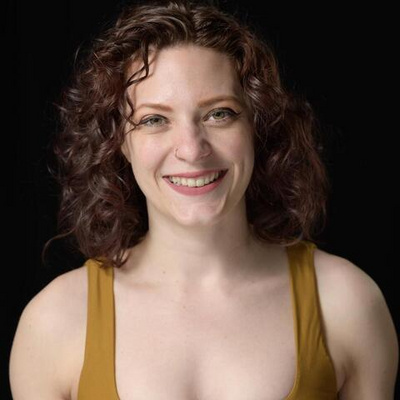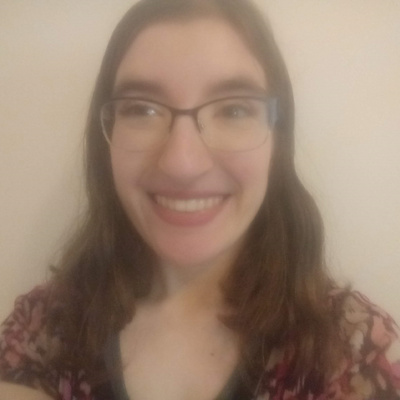Maximizing Your Network: Insights from Cirque du Soleil Talent Scout Xavier Brossard-Ménard

Online talent profiles and digital platforms aside, the casting process is at its core a process of forging human connections… and no one knows this better than Cirque du Soleil Talent Scout Xavier Brossard-Ménard. Let’s hear Xavier’s thoughts on how both casting directors and performers can use their networks to find and build the artistic relationships that they desire.
Known for his fiery spirit, lively interpretations, and innovative programming, Xavier Brossard-Ménard is an accomplished chamber clarinetist and chorus master, as well as the artistic director and conductor of the professional vocal ensemble Les Rugissants. Over the course of his career, Xavier has directed several renowned ensembles, such as Les Muses Chorale, the Toronto Children’s Chorus, the McGill Conservatory Singers, the Youth Choir of the Faculty of Music of the Université de Montréal, and the choirs of the École de musique Vincent-d’Indy, as well as conducting orchestral and chorus concerts in Canada and around the world. He became president-elect of Choral Canada, the association that federates and promotes choral singing in Canada, in 2022. Last but not least, Xavier has since 2017 been a Singing Casting Partner of Cirque du Soleil, leading international auditions for the company.
We asked Xavier about his own approach to casting and how he uses digital tools to find new talent and faciliate building out one’s creative network. In return, he offered us some wise words for people on both sides of the casting process.
Melissa Mellon (MM): What was your pathway to becoming a casting director?
Xavier Brossard-Ménard (XBM): I became a casting director somehow by accident: I’m a professional orchestra and choir conductor and a clarinetist. At a moment in my musical career, I wanted to try new avenues, work with a team of people and become a scout for singers and instrumentalists for Cirque du Soleil. It was a great fit, and it felt invigorating to work for a worldwide company with ambitious goals.
I say “by accident,” but that is actually not totally true. As a conductor, I audition singers and musicians for the companies I work for or for my own projects all the time; a big part of my time on the podium is dedicated to analyzing what I hear and comparing it to what I have in mind. It is actually the same process when you do casting. Also, my partner would tell you that I’m quite critical (ahahaha) and in a casting context, that becomes more an asset than a fault!
MM: What is your most trusted source for finding talent?
XBM: I strongly believe that your network (and your digital one is part of it)—its quality, variety, and density, and how people relate to you—makes a huge difference in how you can find rich talent quickly.
If you can convey the quality of the profile and the vision of the show paired with the understanding of a given territory and a pool of talent, then your network will provide the right person. The digital tool will always be included in the research for the perfect fit, but ultimately, you need humans to understand humans. Then I would say that [you need] more angles and diversified actions interacting together to source talent (e.g. browsing a territory, contacting agents, hiring a local partner, writing a generic post on Facebook, having a chain of recommendations on WhatsApp, relying on very targeted digital initiative).The web of initiatives: this ecosystem is the key to a successful casting. But in the end, the human aspect, the story you can tell is what matters.
.
Showcase your talent!
Complete your profile page and add your act or show to the pool of performers being considered for hire via our talent database.
Signing up and creating your profile is FREE!
.
MM: What is the most time-consuming part of sourcing talent and why?
XBM: Emails and people not knowing what they want.
And if you combine them: trying to gain clarity by writing more emails.
Usually when a profile has clarity, it’s not difficult to harvest it. It is somewhat normal for a creative team that develops a show to start with blurry contours, but the more effort in formulating a profile, the faster and more fruitful the search is, as well as the process. On the other hand, too much clarity and too many details can hinder the contribution of the context, the serendipity of the process.
The platform we use or the processes at hand can be very counterintuitive and draining. Using technology that makes the user experience fun and rich and lowers the number of clicks boosts productivity and fun. Who wants a jarring experience?
MM: Do you see any potential ways to make this aspect less of a pain point?
XBM: I think people should use the phone more often and get together to talk! There is so much that gets done in short and recurring conversations.
Creating platforms that are more playful and engaging would be nice. And updating old ones to make them more efficient, too.
MM: What is something that you wish artists knew about the casting process, and what can artists do to facilitate a casting director’s work?
XBM: A few random thoughts on the casting process: Casting is HR for artists.
If you want to get a job in a company, the first thing you should do is know what they are about. What are they looking for?
When this is clear for you, contacting an artist who was successful in getting a job with them is a valuable thing to do, as this person will have soft information and contacts that could positively influence your application process.
If you start with the idea that the volume of applicants for a position is very high, then you need to bear in mind that you are competing for time and attention.
Making sure that you have totally digested what is needed, in terms of the format of submissions and deadlines, by carefully reading what’s written on the website is a key to your success (and also to the casting director that is reviewing your file). Presenting material that is dead center with the profile, neither too short or too long, is important to your success. You need to be able to convince [them] very quickly.
Comparing the candidate with its own production is important to assess the consistency of the skills, both artistic and technical, but also the flexibility in one’s approach.
I also believe that the material should never be more than 2-3 years old, and adding something you did in the last few months tells us that you are active and that your skills are equal to or better than before.
Just show your absolute best: the advantage of digital casting is that you control everything you show. If something is not totally amazing (bad tuning, diction, phrasing), then don’t put it: you don’t have a second chance, you killed your opportunity for a first good impression and it can point to bad judgment—something, down the road, that isn’t positive on a production.
And a few thoughts on victory and defeat:
In victory and defeat, remember that a lot is about timing, availability, and being at the right place at the right moment.
…You might have been the third choice of the company and gotten the role….
…You might be rejected because of a costume issue, the height of your partner, or maybe because the creative team thinks that you are TOO good for a given role….
Questioning one’s worth is a human trait, but I propose viewing it as akin to a brief weekend trip rather than an all-inclusive month-long stay. It’s vital to remember that the majority of criteria affecting our worth are beyond our control. However, the 15% that is within our control pertains to our skill set and how we nurture and showcase it, alongside our determination to advance it.
Main image: Xavier Brossard-Ménard. Photo by Luigi Capasso.
Looking for jobs, auditions, residency and grant opportunities?
PRO has got you covered!
Click here to access the Job Board!
LATEST FROM THE JOB BOARD
Production Stage Manager – BOOP! The Musical National Tour
.
Editor's Note: At StageLync, an international platform for the performing arts, we celebrate the diversity of our writers' backgrounds. We recognize and support their choice to use either American or British English in their articles, respecting their individual preferences and origins. This policy allows us to embrace a wide range of linguistic expressions, enriching our content and reflecting the global nature of our community.
🎧 Join us on the StageLync Podcast for inspiring stories from the world of performing arts! Tune in to hear from the creative minds who bring magic to life, both onstage and behind the scenes. 🎙️ 👉 Listen now!

